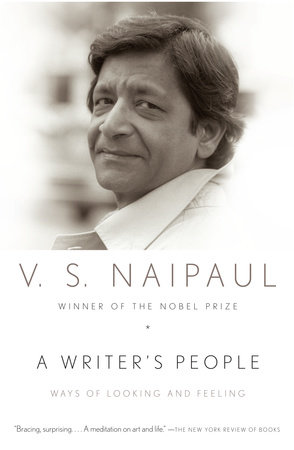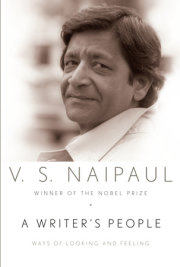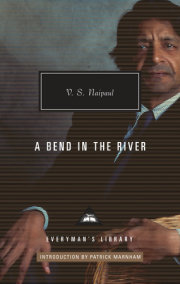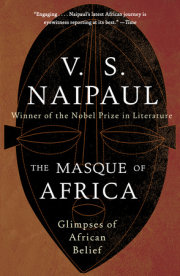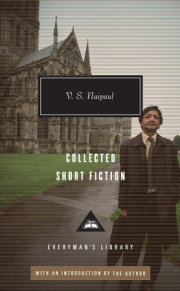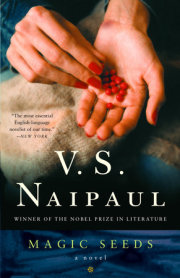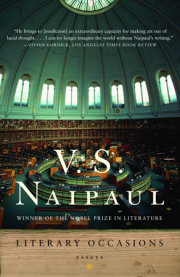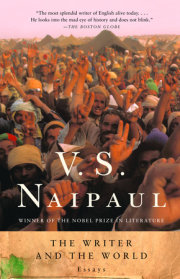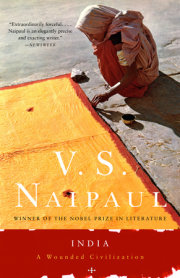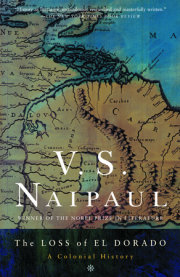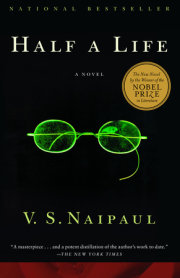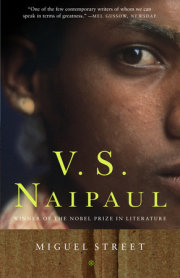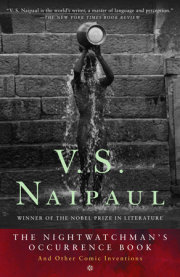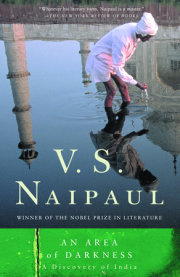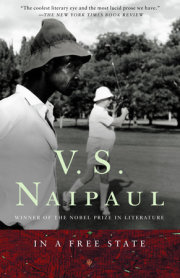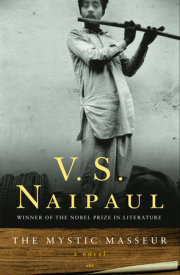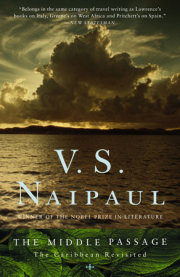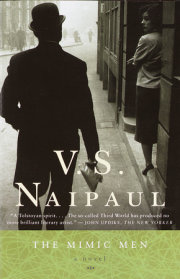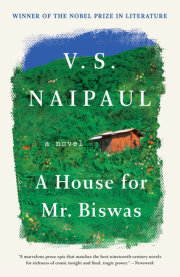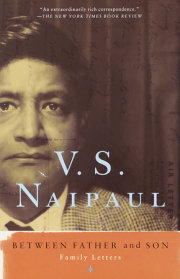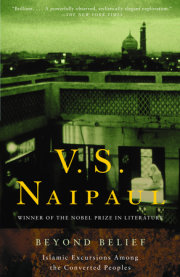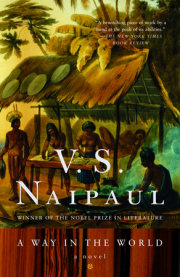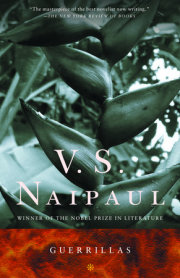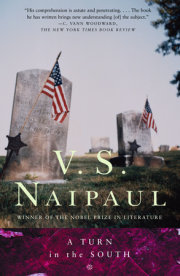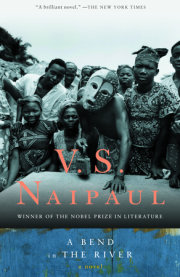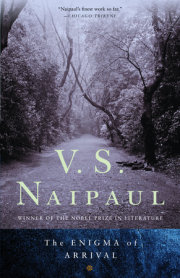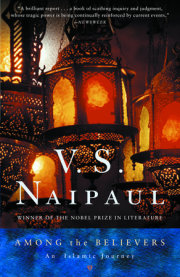The Worm in the Bud
Early in 1949, in Trinidad, near the end of my schooldays, word came to us in the sixth form of Queen’s Royal College that there was a serious young poet in one of the smaller islands to the north who had just published a marvellous first book of poems. We had never had news like this before, not about a new book of poetry or about any kind of book; and I still wonder by what means this news could have reached us.
We were a small, mainly agricultural colony and we said all the time, without unhappiness, that we were a dot on the map of the world. It was a liberating thing to be, and we were really very small. There were just over half a million of us. We were racially much divided. On the island, small though we were, the living half-cultures or quarter-cultures of colonial Europe and immigrant Asia knew almost nothing of one another; a transported Africa was the presence all around us, like the sea. Only segments of our varied population were educated, and in the restricted local way, which we in the sixth form understood very well: we could see the professional or career cul-de-sacs to which our education was leading us.
As always in these colonial places, there were little reading and writing groups here and there, now and then: harmless pools of vanity that came and went and didn’t add up to anything like an organised or solid literary or cultural life. It seemed unlikely that there were people out there who were guardians of the life of the mind, were watching out for new movements, and could make a serious judgement about a new book of poetry.
But in the strangest way something like that had happened. The young poet became famous among us. He came from the island of St. Lucia. If Trinidad was a dot on the map of the world, it could be said that St. Lucia was a dot on that dot. And he had had his book published in Barbados. For island people the sea was a great divider: it led to different landscapes, different kinds of houses, people always slightly racially different, with strange accents. But the young poet and his book had overcome all of that: it was as though, as in a Victorian homily, virtue and dedication had made its way against the odds.
There might have been other promptings. There was much talk at the time about cherishing our local island “culture”; it was when I grew to hate the word. This talk focused on a talented dance group called the Little Carib (operating in a residential house not far from where I lived), and on the steel band, the improvised and extraordinary music-making of the back streets, done on oil drums and scrap metal, which had developed in Trinidad during the war. With these rare things, it was felt, local people would no longer go empty-handed into the community of nations; they would have something of their own to proclaim and be able at last to stand as men and possess their souls in peace.
Many who looked for this kind of comfort were actually the better-off, middle class and higher, in various ways racially mixed, in good jobs, but with no strong racial affili- ation, not wholly African, not European, not Asian, people who had no home but the island. A generation or so before they would have been content to be neither black nor Asian. But now they had begun to suffer in their jobs and in their persons from what, with their success, they saw more clearly as colonial disrespect. They were no longer content to hide, to be grateful for small mercies; they wanted more for themselves.
The talk about a local culture, the steel band and the dance, also came from people with political ambitions. Such talk could flatter a potential black electorate. The franchise was still restricted; but it was known that self-government was coming. Someone who spoke and wrote a lot about the culture was a man called Albert Gomes. He was a city politician who aimed to go higher. He was Portuguese and enormously fat. The fat did him no harm; it made him a character, easily recognisable in the city, much talked about (even in our sixth form), and much loved by the black people in the streets, who at that time, in the 1940s, strange as it might appear, still had no black leader. Albert Gomes saw himself as that leader. As a black leader in the city he had a hard anti-Asian, anti-Indian line; Indians were country people and no part of his constituency. I heard that at one time he smoked a pipe, wore a walrus moustache, and tried to look like Stalin.
Before he came to politics he was a man of culture. In the 1930s and early 1940s he published a monthly magazine called the
Beacon. He also wrote poetry. At home we had the slenderest book of his poems:
Thirty-three Poems, four or five inches square, bound in a patterned magenta cloth, dedicated to his mother, “because she does not read verse.” I have a half memory of the first poem:
Weep not or wail / Pleasure and grief are vain / The wheel must turn, the river flow / And the day unveil.Albert Gomes had a column in the
Trinidad
Sunday Guardian. He signed it Ubiquitous, which not many people knew the meaning of and few knew quite how to pronounce (“you” or “oo,” “kit” or “quit”?). He was famous for his big words; it was part of his size and style. It was in a Gomes column that I first came across the word “plethora” and decided it wasn’t a word for me. When Gomes wrote about the local island culture he could make it part of his anti-Indian turn, since Indians were staying outside that culture. But there were many sides to Gomes, many strings to his lyre, and I suspect (though I am not really sure now) that it was he who wrote in his vigorous way about the young poet from St. Lucia—part of the theme of an island culture—and made us take notice.
The reader will have guessed by now that the poet was Derek Walcott. As a poet in the islands, for fifteen or sixteen or twenty years, until he made a reputation abroad, he had a hard row to hoe; for some time he even had to work for the Trinidad
Sunday Guardian. Forty-three years after his first book of poems came out, self-published, he won the Nobel Prize for literature.
As for Albert Gomes, who might have been his champion in 1949, he came to no good. In 1956, six years after I had left the island, there arose a proper black leader, Williams, a small black man with dark glasses and a hearing aid, stylish (a necessary quality) with these simple props, and soon overwhelmingly popular. He talked a lot about slavery (as though people had forgotten). By that simple means he made all island politics racial; and Gomes, the Portuguese, with no true constituency now, for all his anti-Indian postures, all his talk about the island culture, the dance and the steel band, was broken and humiliated and cast aside by the same black people who just a few years before had liked to see him as a fat-man character, their protector, a local carnival Stalin with moustache and pipe.
So I knew the name Walcott. But I didn’t know the verse. Albert Gomes (and others) might have quoted some of the lines in their articles, but I didn’t remember anything.
I had no feeling for poetry. Probably language had something to do with it. Our Indian community was just fifty years away from India, or less. I had a Hindi-speaking background. I couldn’t speak that language but I understood it; when older people in our joint family spoke to me in Hindi I replied in English. English was a language we were just coming into. English prose was the object of my writing ambition, and such limited feeling as I have now for the poetry came to me later, through the practice of prose.
I didn’t do English in the sixth form; and when I saw the text books, the
Lyrical Ballads and so on, I considered myself lucky. Poetry in school had stopped for me the year before, with Francis Palgrave’s
Golden Treasury. I had loved the rollicking children’s verses in the junior reading books at school; more than sixty years later they still come back to me. Palgrave should have built on that pleasure, if I were ready for him; but I didn’t get on with his Victorian anthology. I hated the very sight of the red soft-covered book (the soft cover an economy of wartime book-production). The poems he had chosen made me think of poetry as something far away, an affectation, a searching for rare emotion and high language. And just as Albert Gomes had made me decide that “plethora” was never a word I would use, so Palgrave made me decide that poetry was not for me.
So I wouldn’t have known in 1949 what to make of Walcott. But we should at least have bought the little book. It wasn’t cheap (more than the price of a Penguin, and twice the price of a very good cinema seat) but it wasn’t expensive: a local dollar, four shillings and twopence, twenty-one pence in modern money. But if English was something we were just coming to, this kind of book-buying was something we were as yet very far from. We bought school books; we bought cheap editions of the classics; my father, an Indian nationalist in this small way, occasionally went to a shop in Charlotte Street in the centre of the city and bought Indian magazines (the
Indian Review and the
Modern Review) and books about India from Balbhadra Rampersad (with his big purple stamp on the fly leaf of the books he sold: I never got closer to him than that stamp: I never got to know the man or his shop). But to go out and buy a new book like the Walcott because people were talking about it would have seemed an extravagance; and that was where we were in the end ruled by the idea of our poverty. And though as a writer I was to depend on people buying my new book, that idea of book-buying as an extravagance stayed with me for many years.
It wasn’t until 1955 that I came across the Walcott book. I had been in England for more than four years. They were bleak years. I had done the university (I had read English) and for a year or so I had been living in poor circumstances in London trying to get started as a writer. The only blessing of that time—and it was a very great blessing—had been the part-time job I had by a lucky chance managed to get with the BBC Caribbean Service as editor of their weekly literary programme,
Caribbean Voices.
Caribbean Voices was a post-war BBC idea, part of a general new dawn in the world, as it seemed, and was about ten years old. I and my father had contributed stories to it, and during my time at the university I had got to know the producer, Henry Swanzy. It happened now that Henry—whose family had or used to have trading interests in West Africa: Henry told me that there was or used to be a famous rum there known as Swanzy Rum—it happened that Henry was going for a few years to Ghana to work in the radio there (part of the new dawn), and it was his charitable idea that I should take over the
Voices part of his BBC duties.
This rescued me from destitution. I got eight guineas a week minus deductions, and I was required to attend for three half-days a week. In fact, I went in every day, for the excitement, the company of the people at the BBC, and to get away from my two-room lodgings (with shared bathroom) in the Irish area of Kilburn, at the back of the great brick wall of the Gaumont State cinema, said to be the biggest cinema in the country.
I got to know the
Caribbean Voices archive. I got to know a lot more about Henry’s talents as an editor. He was a melancholy man, in some ways too good for the work he was doing; some of his foolish colleagues said he was arrogant. He had had literary ambitions himself at the university, and in the
Caribbean Voices archive I felt I could see these ambitions sublimated in his work as editor. He took the writing from the islands very seriously. He saw virtue and point where none or perhaps little existed (and it was no accident that, a few years after he left the programme, it faded away, together with the romantic idea of Caribbean writing as a new force in English letters). Henry had a feeling for poetry and language which I didn’t have. He might have wanted to be a poet himself; I don’t know. His quarterly round-ups of work done on the programme were marvellous; I could never match them. And it was through his quite extraordinary appreciation that I at last came to Walcott and his
25 Poems, the famous book of 1949, a copy of which I now managed to get.
The copy I got was of the second printing, done in April 1949, three months after the first. I would have left Queen’s Royal College by then, and I didn’t know at the time that there had been this second printing. It proved now, in a changed time in London, that my memory of the poet’s success was not exaggerated. His book (the second printing would have been like the first) was plain and paperbound and thin, almost without a spine, with cream-coloured covers and thirty-nine pages of text. It had been produced without any kind of style or typographical flourish by the Advocate newspaper press of Barbados: a Goudy bold typeface for the titles, a standard news-page font for the poems themselves. A poor job; but the very simplicity was impressive.
My judgement in poetry was good enough for most of what came to
Caribbean Voices, but it was still crude. I still didn’t go to poetry out of choice. But I had a little more confidence now. At the university I had over four years read nearly all Shakespeare and Marlowe, some of the plays many times. This had been an education in itself, training me out of my old idea that poetry dealt in declamation and obvious beauty: some of the plainest lines in Shakespeare and Marlowe had been full of power.
And now, when I went to the Walcott, I was overwhelmed. The poems I could enter most easily were the shorter poems in the collection. They were the ones whose argument I could manage. I lost my way in the longer poems; I thought what was being said prosy and difficult and I stumbled over the poetic diction. I left those poems to one side and concentrated on the ones I liked; the poet and his book, short as it was, did not suffer.
Henry Swanzy had opened my eyes to the beauty and often the mystery of some of Walcott’s opening lines. So now I could savour the ambiguity of
Inspire modesty by means of nightly verses, the first poem in the collection, where the modesty could be sexual or poetic, and the verses could also be prayers; the riddle of
I with legs crossed against the daylight watch; the delicious word-play of a poem about the recent burning down of Castries, the capital of St. Lucia:
When that hot gospeller had levelled all but the churched sky. I learned that last poem by heart; though it would be truer to say that I read it so often that it fixed itself in my mind, and parts of it (a little jumbled) have stayed there to this day.
It seemed to me quite wonderful that in 1949 and 1948 and doubtless for some years before there had been, in what I had thought of as the barrenness of the islands, this talent among us, this eye, this sensitivity, this gift of language, ennobling many of the ordinary things we knew.
The fishermen rowing homeward in the dusk are not aware of the stillness through which they move. We lived in Trinidad on the all but shut-in Gulf of Paria, between the island and Venezuela; that sight of fishermen, silhouettes in the fast-fading dusk, so precisely done, detail added to detail, was something we all knew. Reading these poems in London in 1955, I thought I could understand how important Pushkin was to the Russians, doing for them what hadn’t been done before. I put the Walcott as high as that.
I added to my income in those days by doing little five-guinea five-minute radio scripts for a magazine programme on the BBC Caribbean Service. I thought I would do something about the National Portrait Gallery, and I went to see David Piper, the director, who also wrote novels under the name of Peter Towry (one of which I was to review three years later for the
New Statesman). For some weeks the previous year, 1954, when I was stiff with asthma and a general anxiety, I had done a petty cataloguing job for the Gallery (of
Vanity Fair caricatures by Spy and Ape and the others, fascinating to me) for a guinea a day, or half a guinea a half-day. David Piper rebuked me now—gently, but it was a rebuke—for showing no interest in the pictures in the Gallery when I worked there. I told him I had not been well; he was magnanimous, and helpful with my little radio script.
I was full of Walcott at this time. I told Piper about him, and recited the poem about the burning down of Castries, “A City’s Death by Fire.” He, handsome and grave behind his desk, listened carefully and at the end said, “Dylan Thomas.” I knew almost nothing about contemporary poetry, and felt rebuffed and provincial. It was a let-down: perhaps, after all, I didn’t truly understand poetry. But it didn’t lessen my feeling of kinship with Walcott or my pleasure in the lines I liked.
I recited another poem one lunchtime to Terence Tiller, a Third Programme producer I used to see in a BBC pub and had got to know. He drank Guinness in quantity at lunchtime, standing at the bar; he said it was food. He had been a minor poet in the 1940s; I had seen his name in illustrious company in various magazines; and to me in 1955 that was achievement enough. I respected his education and intelligence and generosity. The poem I recited to him was “As John to Patmos,” in which, quite wonderfully, as I thought, again ennobling us all, Walcott had equated the light and clarity (and fame) of the Greek islands with what we had always seen about us. It was a poem about the splendour of our landscape, and Henry Swanzy had picked out the extraordinary phrase
the sun’s brass coin in my cheek, which everyone among us who had been to the beach would have recognised.
Terence, like David Piper, listened carefully. The Guinness flush left his face; his eyes were intent behind his thick-rimmed glasses; he was all at once a man to whom a poet’s words mattered. His admiration was more wholehearted than David Piper’s, and at the end his only comment was on the last two words of the twelfth line:
For beauty has surrounded / These black children and freed them of homeless ditties. The poet, he said, hadn’t yet earned the right to use a word like “ditty.”
I was puzzled by this, which seemed a very fine kind of poetic judgement, beyond me, but I respected it, and over the next few weeks I worked out that Terence perhaps meant that “ditty” belonged to a more popular style of writing and could be used to proper poetic effect only in a more sophisticated context. The idea of the physical glory of the islands in the poem was done with standard tropical properties, so to speak, and done without irony; and after all the work the poet had done—the mysterious title, “As John to Patmos,” and
the sun’s brass coin in my cheek, where canoes brace the sun’s strength—after all that, the “beauty” surrounding the black children had been a strangely lazy word. Picking the poem to pieces in this way, I had to acknowledge that “black,” too, had always been difficult for me, embarrassing to recite. This sentimental way of looking and feeling was not mine; “children” would have been enough for me.
But I didn’t mind. I could look away from this sentimentality, almost brush it aside. The poet I cherished was the user of language, the maker of startling images, intricate and profound, a man only two years older than I was, but already at eighteen or nineteen a kind of master, casting a retrospective glow on things I had known six or seven or eight years before.
In 1955 I used everything that he sent to the
Voices, though it was clear that six years after his book the first flush of his inspiration had gone, and he was now marking time, writing to keep his hand in, looking for a way ahead. He did an imitation of a Keats narrative poem; he did something in the manner of Whitman (I believe, but I may be wrong). They were both linguistically accomplished, but they were only exercises, without the island landscape that fed his imagination and was so much part of his poetic personality.
In one poem he tried for a reason I don’t remember to recreate Ireland, which I don’t think he had visited. I felt I knew why he had done that, and was sympathetic: he would have wanted to be more universal, to break away from the social and racial and intellectual limitations of the island, where, as he had written,
the fine arts flourish on irregular Thursdays.It was something we with literary ambitions from these islands all had to face: small places with simple economies bred small people with simple destinies. And these islands were very small, infinitely smaller than Ibsen’s Norway. Their literary possibilities, like their economic possibilities, were as narrow as their human possibilities. Ibsen’s Norway, provincial as it was, had bankers, editors, scholars, high-reaching people. There was nothing of this human wealth in the islands. They didn’t give a fiction-writer or a poet much to write about; they cramped and quickly exhausted a talent which in a larger and more varied space might have spread its wings and done unsuspected things.
It was a kind of literary blight that in varying ways affected other places as well: big countries that for political or other reasons had become hard to write about as they were. So Camus in the 1940s could cleanse Algeria of Arabs; and twenty or thirty years later some South African writers, fatigued by the theme of race, with its inevitabilities, its pressures to do the right thing, could seek to create a race-free no man’s land to give room to their private imaginings.
I gave up
Caribbean Voices in 1956. I lost that intimate connection with Walcott’s development, and had no idea how he moved away from the imitative quagmire of 1955. That he would have left that behind I had no doubt.
I met him for the first time in Trinidad in 1960; he was thirty then. He told me one morning in a cafe in central Port of Spain how poems came to him. He did so in a very full and generous way, but what he said was complicated and I couldn’t understand. I had looked at a few of the later poems. They did not stir me, though the poet might have said they were profounder than the early poems I knew. The island landscape was there again, but the simple old idea of its “beauty” was dropped; the imagery and the language were more tormented; meaning was elusive. I began to feel—as I used to feel in the old days about all poetry—I was not equipped to deal with this poet.
I met him again in Trinidad in 1965. He was more tormented than before by his job on the local Sunday paper; it would have been humiliating for him to be bossed around by people he saw as his inferiors, in what was still a colonial setting. Yet he had become a kind of local figure. He was doing plays, and they were staged. He took the plots of old Spanish plays (I believe), gave them a local setting, and redid the characters as local Negroes. He was pleased to be asked to do the “book” of a fantasy (for a musical) I had written for a small American film producer. I don’t know what he did for that project; the film was never made.
I didn’t see him again. He was on the brink of his international career: a wonderful new black voice in the United States: his poems published in New York and London, and called out from the islands to teach in American universities.
Copyright © 2008 by V.S. Naipaul. All rights reserved. No part of this excerpt may be reproduced or reprinted without permission in writing from the publisher.

